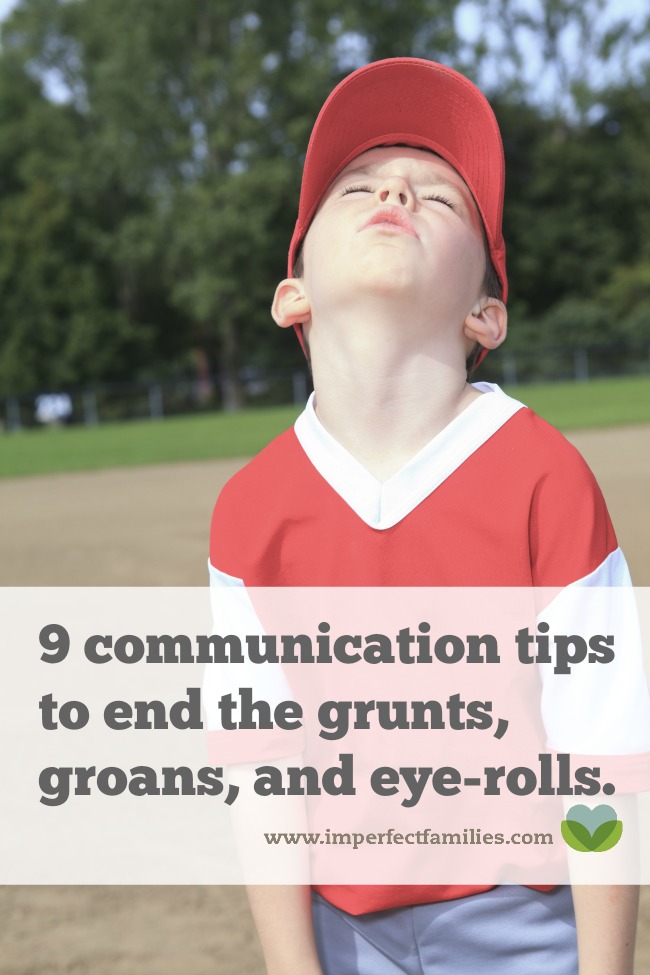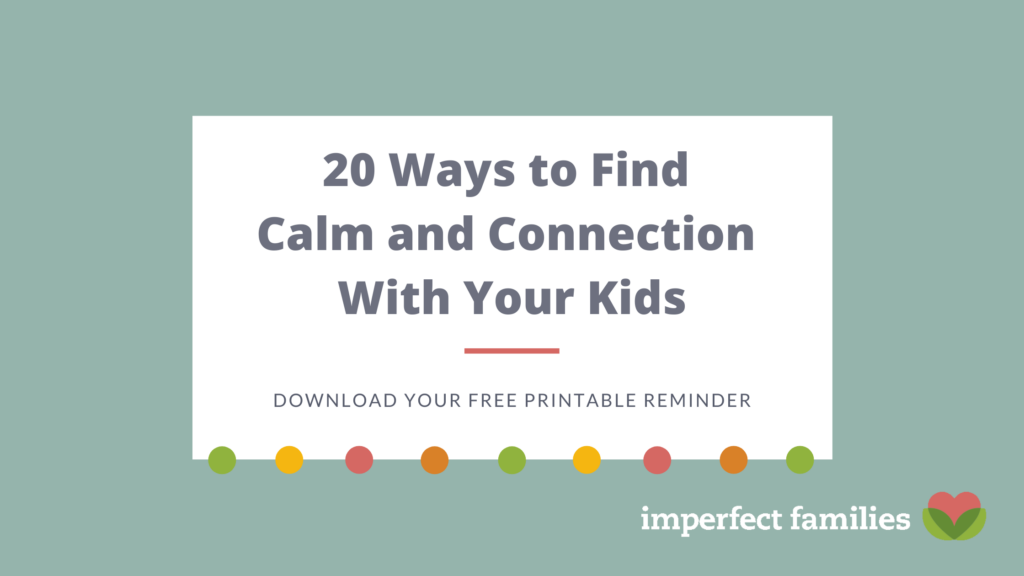
Do you ever feel like talking to your kids is harder than it has to be?
You: “How was school?”
Your Child: “Fine.”
You: “So, what did you do?”
Your Child: “Nothing.”
You: “Come on, I know you did something.”
Your Child (rolling his eyes): “Come on Mom. Leave me alone.”
Ugh. Round and round you go, and it always ends the same way: Frustration, irritation, and disconnection.
You think back to when they were little, talking to you about every little rock they found at the park or describing the party scene at Barbie’s dream house. You’d give anything for those conversations again.
When did communication get so off track?
Sometimes, just a simple change, a different wording, or a shift in your body language can make a world of difference to your kids.
9 Communication Tips You Can Use Today!
- Give Them Your Attention: You are busy. You are pulled in a number of different directions all day long. However, when you stop what you’re doing and focus on your child’s story, you send the message: “You are important to me!” Keep in mind, some children talk more at night, so you may want to build it into the bedtime routine. Other children prefer to talk when there is less eye-to-eye contact, such as when they are in the car.
- Listen without Interrupting: Sometimes it’s challenging to sit and listen to a child while they are talking. We want to jump in and correct grammar, teach a lesson, make sure they know where we stand. Unfortunately, interrupting often ends the conversation. Instead, focus on letting your child know that you are listening, say, “Oh” or “mmhmm.” Find an emotion, “that sounds embarrassing!” or ask clarifying questions, “then what happened?“
- Don’t Criticize: Nothing shuts down communication like getting negative or critical feedback. Kids make mistakes all of the time, that’s how they learn and grow. If your child opens up to you, resist the urge to criticize their story or point out all of their mistakes. Instead, listen to their story. If you need to give your child feedback, do it in a way that keeps the lines of communication open: “I wonder if there is another way to tell your teacher you’re upset?”
- Ask Open-Ended Questions: Challenge yourself to phrase questions in a way that your child has to answer with more than a “yes” or “no.” Instead of, “Did you have a good day?” ask “What book did you choose at the library today?” Instead of, “How was your math test today?” You may try, “What was the hardest question on your math test today?” Phrases like, “I wonder...” or “How did that feel?” may also open up the conversation.
- Make Space for Big Emotions: If you want to be a good listener, you’re going to have to get used to hearing about the good, the bad and the ugly…without shutting down the conversation. This means, allowing your kids to express anger, frustration, disappointment, and disagreements. If your child has difficulty managing big feelings, practice coping techniques during calm moments (not in the middle of a heated conversation).
- Limit the Lecturing: I’ve never heard a child say, “Thanks for the lecture dad, you’ve inspired me to change my ways.” It’s tempting to sit your child down and give them a long explanation, but more than likely, your child will tune you out and your “wisdom” will be lost. Keep your conversations brief, and look for ways to teach your child morals and values throughout their day-to-day life.
- Encourage Brainstorming: When you jump in and solve your child’s problem, they miss out on an opportunity to think critically and brainstorm their own solutions. Instead of intervening with the “perfect” solution, give your child a chance to think through the situation and come up with a few ideas. Help them evaluate these ideas and, if possible, give them the chance to try out their own solutions before offering one of your own.
- Give Specific Positive Feedback: Kids know when you’re being sincere and when your comments are less than genuine. Instead of giving out a ton of generic “good jobs“, save your praise for things that really deserve the attention. When you see or hear something remarkable, mention it specifically, “You really showed a lot of courage speaking up for Lilah in class today.”
- Know When to Be Quiet: One of the most challenging communication skills is knowing when to stop talking. Parents tend to repeat, explain, solve, and stay engaged in arguments way past the point of being productive. Decide to take yourself of the conversation earlier, rather than later. Be ok with not “having the last word” or “showing her who’s boss.” Focus more on what you can control – your own actions and behaviors.
If you don’t consider yourself an “expert communicator” right now, that’s OK! Pick one or two things on this list and start there.
Once you feel more comfortable, add in a few other tips.
Before you know it, you’ll notice a shift in the conversations.
Less grunting and “I don’t know” responses and more, “Hey mom, you’ll never guess what happened today at school!”
And you’ll smile as you sit down and listen.



Comments have been turned off to retain the privacy of all families. If you have a question or comment on the topic, you're always welcome to contact me.